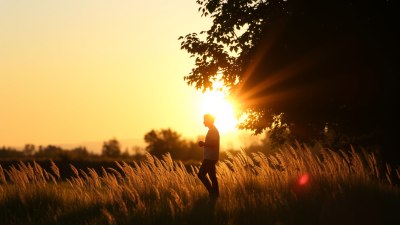Why Cold Weather Can Make People Feel More Lonely
Explore how cold weather impacts feelings of loneliness and social isolation during winter months.

As the temperature drops and winter settles in, many people may find themselves battling feelings of loneliness and isolation. Cold weather can profoundly affect our mood and social interactions, leading to increased feelings of loneliness. Understanding the psychological and physiological reasons behind this phenomenon can help individuals cope better during the harsh winter months.
The Influence of Seasonal Changes
The change in seasons has a significant impact on our mental health. As days grow shorter and temperatures fall, people may become less inclined to engage in outdoor activities. This reduction in physical activity can lead to feelings of isolation. Additionally, shorter daylight hours can affect our mood, leading to conditions such as Seasonal Affective Disorder (SAD). SAD is a type of depression that typically occurs during the winter months when natural light is scarce. This condition can exacerbate feelings of loneliness as individuals may withdraw from social interactions due to low energy levels and feelings of sadness.
The Role of Social Interactions
During colder months, social interactions tend to decrease. People are less likely to gather or participate in community events as the weather worsens. This can lead to decreased social support, which is crucial for maintaining mental well-being. According to various studies, social interactions are vital for reducing feelings of loneliness. Engaging with friends, family, or community can help combat the effects of cold weather. However, the inclination to stay indoors can make this difficult, perpetuating a cycle of isolation.
The Comforts of Home
It's natural to seek comfort during cold weather, and many people find solace in their homes. However, while staying inside can provide a sense of security, it can also lead to increased feelings of loneliness. When individuals isolate themselves at home, they may miss out on important social connections. The warmth of a cozy blanket and a hot drink are comforting, but they can also be a barrier to social interaction. It's essential to strike a balance between enjoying time at home and actively seeking out social opportunities.
Technology and Loneliness
In today's digital age, technology plays a significant role in social interactions. While social media and virtual communication can help bridge the gap during cold weather, they can also contribute to feelings of loneliness. Online interactions may not provide the same level of emotional connection as face-to-face interactions. People may feel disconnected even while engaging with others virtually. Furthermore, the curated nature of social media can lead to feelings of inadequacy, as individuals compare their lives to the seemingly perfect lives of others displayed online. During winter months, it's crucial to focus on nurturing genuine connections, whether they are virtual or in-person.
Physical Health and Mental Health Link
The cold weather can also have direct consequences on physical health, which in turn can affect mental well-being. Winter illnesses, including flu and colds, can lead to decreased energy levels and motivation. When individuals are physically unwell, they are less likely to engage in social activities, increasing their feelings of isolation and loneliness. Furthermore, limited exposure to sunlight can lead to decreased levels of serotonin, a neurotransmitter that contributes to feelings of happiness. A lack of physical activity during cold weather can also lead to weight gain and other health issues, further impacting one's mental health.
Strategies to Combat Loneliness in Cold Weather
It’s essential to implement strategies to counteract the feelings of loneliness that often accompany colder months. Here are some effective strategies:
Maintain Regular Social Interactions
Try to maintain regular contact with friends and family, even if it’s through phone calls or video chats. Scheduling virtual game nights or movie watch parties can help create a sense of togetherness despite physical distance.
Engage in Outdoor Activities
While it may be tempting to stay indoors, engaging in outdoor activities can provide a significant mood boost. Activities such as winter hiking, ice skating, or even walking in the snow can stimulate endorphin production, which can enhance mood and provide mental clarity.
Join a Community Group
Joining a local community group can foster social connections. Many communities host winter activities such as book clubs, crafting workshops, or community sports. Participating in these activities can help combat loneliness and establish new friendships.
Volunteer Opportunities
Volunteering is another effective way to combat loneliness. Helping others can provide a sense of purpose and belonging. Look for local shelters or community centers that may need assistance during the winter months.
Practice Self-Care
Prioritizing self-care is crucial during the colder months. Engaging in activities that promote relaxation, such as yoga, meditation, or even warm baths can help reduce stress and improve mental health. Taking care of your physical health by maintaining a balanced diet and staying hydrated can also have positive effects on mental well-being.
In conclusion, cold weather undoubtedly impacts our feelings of loneliness. By understanding the factors contributing to this phenomenon and implementing strategies to stay connected, individuals can reduce feelings of isolation during winter months. By prioritizing social interactions, embracing outdoor activities, and practicing self-care, it is possible to foster a sense of community and belonging, even in the coldest of seasons.











